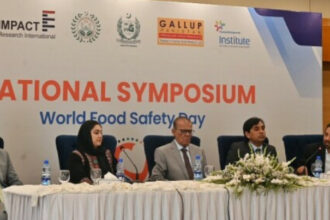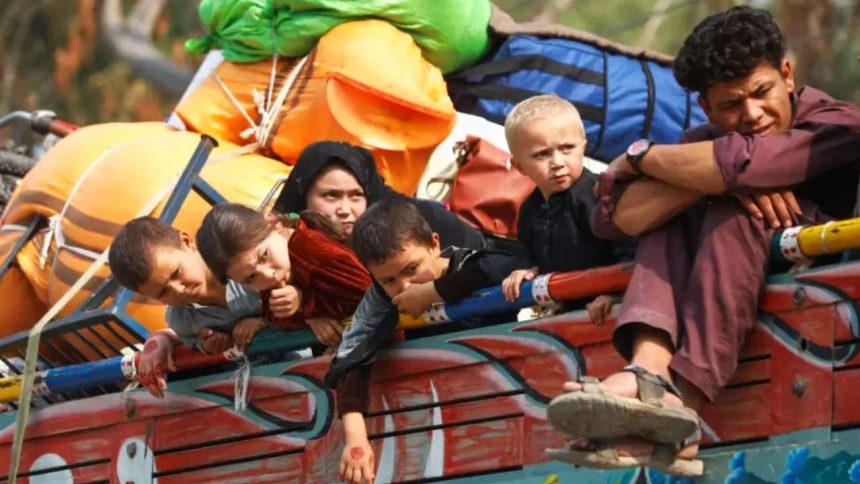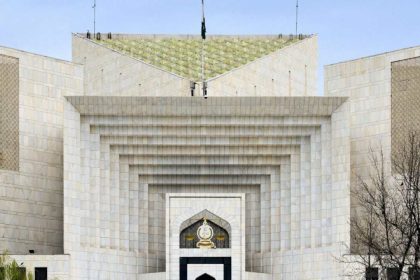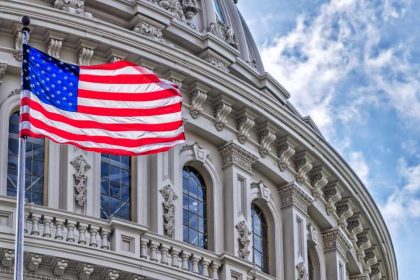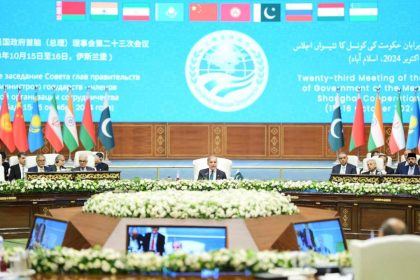For a long time, Pakistan has proved to be a ‘safe haven’ for Afghan refugees, especially those who fled wars and persecution since the Soviet invasion. It has been generous to a point that Islamabad allowed even undocumented Afghans to stay, and provided for their basic amenities. Like all good things, this hospitality is also coming to an end, mainly because of the repercussions it had for the host.
The government launched a new repatriation plan for Afghan refugees in October last year amid criticism from Afghan authorities as well as local and foreign rights organization, especially the United Nations High Commissioner for Refugees (UNHCR) and the Amnesty International. According to the latest information, Pakistani authorities have expelled more than 32,200 Afghan nationals during the last month alone, signalling an intensified crackdown on ‘undocumented’ immigrants.
The deportations reportedly occurred between July 21 and August 17, and brought the total number of repatriations to 691,853 since the campaign’s launch. Official figures show that among the 32,200 migrants deported, 11,054 were children and 9,320 women, who failed to produce any valid residency document. In Kabul, Ministry of Refugees and Repatriation confirmed that 55 families deported from Pakistan crossed into Afghanistan through the Spin Boldak border crossing in Kandahar province on August 18.
GENDER-BASED VIOLENCE
The UN High Commissioner for Refugees also said it provided assistance to 572 Afghan migrants returning from Pakistan, most of whom were women and children. For the returnees, providing food and shelter to their families is just the first of challenges they would face, as they struggle to rebuild their lives. Other than concerns of economic hardships and issues like security and recognition, one thing they would struggle to prepare their young children for is the cultural shock, as they adapt to a new way of life under “a conservative rule”.
However, one of the most serious issue they would face is that of femicide, as many Afghan women have returned, or are going to return, to a country where gender-based violence is no secret. The social impact of this repatriation on Afghan women is going to be troubling, as many of them have studied and worked freely in Pakistan for years, significantly contributing to their families’ earnings alongside the male members. They fear their rights and freedoms would be restricted under the current regime.
‘There could be an increase in illegal re-entry attempts by returnees after facing harsh conditions in Afghanistan, which would lead to a cat-and-mouse game on border’
Moreover, there will be limited access to education, healthcare, and employment for the women, which is likely to push them into poverty and social marginalization. According to UNHCR, around 58 percent of the recently returned families are headed by women, which makes the matters worse for them, especially with half of the returnees being under the age of 18 years.
A recent report by the ‘Afghan Witness’ project of the Center for Information Resilience revealed that at least 332 cases of femicide had been reported since the Taliban’s return to power three years ago. Therefore, these forced returns will not only reverse the progress made by the deported Afghan women and girls but also deepen gender inequalities that would have an adverse effect on the Afghan society unless significant steps are taken for their protection post-repatriation.
EFFECTS ON PAKISTAN
Language is also going to be a big barrier to overcome for the returning Afghan children, who do speak Pashto with Pakistani accent. They will have to experience rigid enforcement of conservative norms. Such cultural shocks are likely to lead to feelings of isolation, confusion, and frustration. Despite these pressing humanitarian concerns, authorities in Pakistan say they are committed to continuing with the deportations, saying it is a ‘necessary’ measure to address ‘security’ concerns and economic strain.
The authorities have time and again pointed to a rise in criminal activities, especially smuggling, involving Afghan nationals, who they said are able to freely slip in and out of the country on one pretext or the other. This repatriation will certainly affect the economy, considering the Afghan nationals’ contributions not just as laborers but also as consumers. Also, they contribute indirectly to Pakistan’s economy by supporting trade and commerce between the two countries, so any forced repatriation might adversely affect such activities, especially in the border regions.
The deportation drive, if turned aggressive, would draw more international criticism and could damage Pakistan’s reputation. Another aspect that often goes unreported, or underreported, is security challenges during and after the repatriation process. Authorities justify this repatriation by arguing that it is a measure to improve security, but those ‘displaced’ Afghans might show resistance and hit back, believing they had been forced back into dire conditions deliberately.
If that happens, it would not only increase cross-border tensions but also complicate Pakistan’s security landscape. On the other hand, there could be an increase in illegal re-entry attempts by returnees after facing harsh conditions in Afghanistan, which would lead to a cat-and-mouse game on the border. To counter this, Pakistan would have to strengthen its border control mechanisms, which means allocation of more resources.
CHALLENGES FOR KABUL
Afghanistan is not in a position to cope with this sudden influx, knowing that this large-scale repatriation will have negative effect on its economy, considering the fact that most of the returning families will struggle to find work. Accommodating tens of thousands of additional workers will be next to impossible, especially when the economy is fragile. This influx will add to the already high unemployment rate of the country. Since many of the returnees would want to settle in urban areas to seize the marginally better job opportunities and lifestyle, it will further burden the housing, healthcare, education and other essential services.
From the economic perspective, the Afghan authorities would be losing millions of dollars in remittances that they had been sending back to Afghanistan while working in Pakistan. With comparatively less capital flying in, there will be a decrease in consumer spending, eventually affecting local businesses. Amid high unemployment, this situation is likely to force the returnees into illegal activities to make ends meet, which will result in rising crime rate and social unrest. The situation will be difficult to manage even if global aid agencies decide to come to the rescue, as it would be a short-term solution.
Also, considering the global economic situation at the moment, sufficient aid flows to Afghanistan are highly unlikely. For these very reasons, the Afghan government has been trying to buy time, urging Pakistan not to deport Afghans back at the moment. Complying with those requests, Pakistan recently announced extending the documented Afghans’ stay by another year, but in the same breath made it clear that illegal immigrants would have to go at ones.
This issue has severely strained relations between Islamabad and Kabul, as Pakistan wants all Afghans who had been living here for decades to return, and the Taliban-led administration in Kabul telling Islamabad to treat Afghan nationals with dignity. The situation demands global community’s intervention to ensure that the process completes successfully without the chance of any humanitarian crisis.



